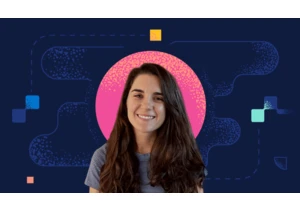Upcoming licensing changes to Elasticsearch and KibanaWe are moving our Apache 2.0-licensed source code in Elasticsearch and Kibana to be dual licensed under Server Side Public License (SSPL) and the Elastic License, giving users the choice of which license to apply. This license change ensures our community and customers have free and open access to use, modify, redistribute, and collaborate on the code. It also protects our continued investment in developing products that we distribute for free and in the open by restricting cloud service providers from offering Elasticsearch and Kibana as a service without contributing back. This will apply to all maintained branches of these two products and will take place before our upcoming 7.11 release. Our releases will continue to be under the Elastic License as they have been for the last three years. In recent years, the market has evolved, and the community has come to appreciate that open source companies need to better protect their software to continue to innovate and make the investments required. As companies continue the shift to SaaS offerings, some cloud service providers have taken open source products and provided them as a service without investing back into the community. Moving to the dual license strategy with SSPL or the Elastic License is a natural next step for us after opening our commercial code and creating a free tier, all under the Elastic License, nearly 3 years ago. It is similar to those made by many other open source companies over these years, including MongoDB, which developed the SSPL. The SSPL allows free and unrestricted use, as well as modification, with the simple requirement that if you provide the product as a service, you must also publicly release any modifications as well as the source code of your management layers under SSPL.This change in source code licensing has no impact on the overwhelming majority of our user community who use our default distribution for free. It also has no impact on our cloud customers or self-managed software customers. Our open originsMy personal journey with open source goes a long way back. In 2005, I open sourced my first project, Compass, to provide a Java framework on top of Apache Lucene while I was building a recipe app for my wife. In the following five years, I invested many weekends and nights working on it, from writing code to helping users with bugs, features, and questions. I had no idea what I was signing up for, especially with a day job “on the side,” but I fell in love with the opportunity to make such a positive impact — trying to build a great product, but more importantly, a great community around it, through the power of open source. In 2009, I decided to do it again, and started to write a brand new project called Elasticsearch. I spent many nights and weekends building it, and in 2010 open sourced it. I even quit my job and decided to dedicate my full attention to it. To be there for the users, through writing code, and engaging on GitHub, mailing lists, and IRC. And when we founded Elastic as a company in 2012, we brought the same spirit to our company. We invested heavily in our free and open products, and supported the rapid growth of our community of users. We expanded from just Elasticsearch to Kibana, Logstash, Beats, and now a complete set of solutions built into the Elastic Stack: Elastic Enterprise Search, Observability, and Security. We have matured the products, fostered vibrant communities around them, and focused on providing the greatest amount of value to our users. Today, we have hundreds of engineers who wake up every day and work to make our products even better. And we have hundreds of thousands of community members who engage with us and contribute to our shared success. I am proud of the company we built, and humbled by the level of trust that we have earned with our user base. This starts by being open and transparent, and continues with being true to our community and user base in our choices. Free and open FTWBack in 2018, we opened the code of our free and paid proprietary features under the Elastic License, a source-available license, and we changed our default distribution to include all of our features, with all free features enabled by default. We did this for a few reasons. It allowed us to engage with our paying customers in the same way we engage with our community: in the open. It also allowed us to build free features that empower our users without providing those capabilities to companies that take our products and provide them as a service, like Amazon Elasticsearch Service, and profit from our open source software without contributing back. This approach was well received — today, over 90% of new downloads choose this distribution — and has allowed us to make so much of our work available for free while also building a successful company. The list of improvements under this new free and open, yet proprietary, license, is overwhelming. I am humbled by the amazing progress our team and community has made across all our products, so much so that I would love to share some of them: We've dramatically improved the speed, scalability, and reliability of Elasticsearch, with a new distributed consensus algorithm and significantly reduced memory usage, in addition to new data storage and compression approaches that have reduced the typical index size by nearly 40% while improving indexing and query throughput. We added new field types for geospatial analysis, and more efficient ways to store and search logs and perform fast, case-insensitive search on security data. In Kibana, we cut load time by 80% and eliminated whole-page refreshes thanks to a multiyear replatforming project, while at the same time introducing an intuitive drag-and-drop data visualization experience with Kibana Lens, key capabilities like dashboard drill-downs, and so much more. Over the last three years, we also built first-class experiences around our most common use cases. In the security area, we created a free and open SIEM right inside Kibana, with a powerful detection engine that supports simple rules as well as complex correlations via a new query language called EQL in Elasticsearch. We include hundreds of detection rules, which we develop publicly, in collaboration with our community. And we joined forces with Endgame, a leading endpoint security company, and have released powerful malware protection for free as part of the Elastic Agent, our unified, centrally managed observability and security agent for servers and endpoints, with more to come. In observability, the story is similar. We've built an entire observability suite right inside Kibana — from a live-tail logging UI to an intuitive infrastructure-level view of the key metrics and alerts across your hosts, pods, and containers. And we now have a fully featured APM product with open source data collectors and agents, supporting OpenTelemetry, real user monitoring (RUM), synthetic monitoring, and the recent addition of user experience monitoring. With Elastic Enterprise Search, we introduced App Search, a layer on top of Elasticsearch that simplifies building rich applications and provides powerful management interfaces for relevance tuning, as well as analytics on how it's being used. We also provide a free Workplace Search product that makes it easy to integrate and search the content sources that you use to run your life or company, like Google Workplace, Microsoft 365, Atlassian Jira and Confluence, and Salesforce. It is simply amazing that we've been able to build all of these capabilities and provide them for free to our community. It has been humbling to see the level of engagement and adoption around our products and how these new features have helped so many people and businesses succeed. And this was possible because the overwhelming majority of our community chose our default distribution under the Elastic License, where all these features are free and open. Why change?As previously mentioned, over the last three years, the market has evolved and the community has come to appreciate that open source companies need to better protect their software in order to maintain a high level of investment and innovation. With the shift to SaaS as a delivery model, some cloud service providers have taken advantage of open source products by providing them as a service, without contributing back. This diverts funds that would have been reinvested into the product and hurts users and the community. Similar to our open source peers, we have lived this experience firsthand, from our trademarks being misused to outright attempts to splinter our community with “open” repackaging of our OSS products or even taking “inspiration” from our proprietary code. While each open source company has taken a slightly different approach to address this issue, they have generally modified their open source license in order to protect their investment in free software, while trying to preserve the principles of openness, transparency, and collaboration. Similarly, we are taking the natural next step of making a targeted change to how we license our source code. This change won't affect the vast majority of our users, but it will restrict cloud service providers from offering our software as a service. We expect that a few of our competitors will attempt to spread all kinds of FUD around this change. Let me be clear to any naysayers. We believe deeply in the principles of free and open products, and of transparency with the community. Our track record speaks to this commitment, and we will continue to build upon it. The changeStarting with the upcoming Elastic 7.11 release, we will be moving the Apache 2.0-licensed code of Elasticsearch and Kibana to be dual licensed under SSPL and the Elastic License, giving users the choice of which license to apply. SSPL is a source-available license created by MongoDB to embody the principles of open source while providing protection against public cloud providers offering open source products as a service without contributing back. The SSPL allows free and unrestricted use and modification, with the simple requirement that if yo
Autentifică-te pentru a adăuga comentarii
Alte posturi din acest grup







